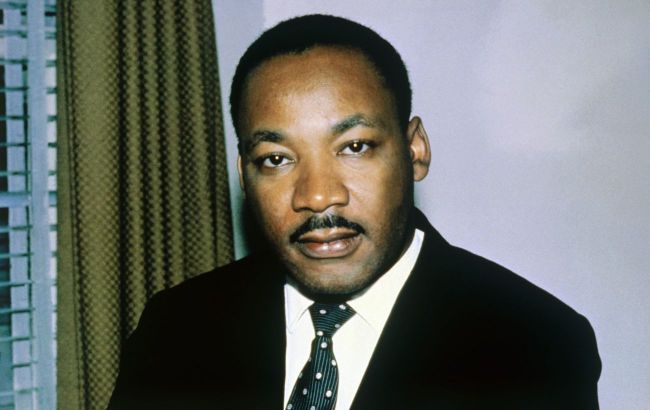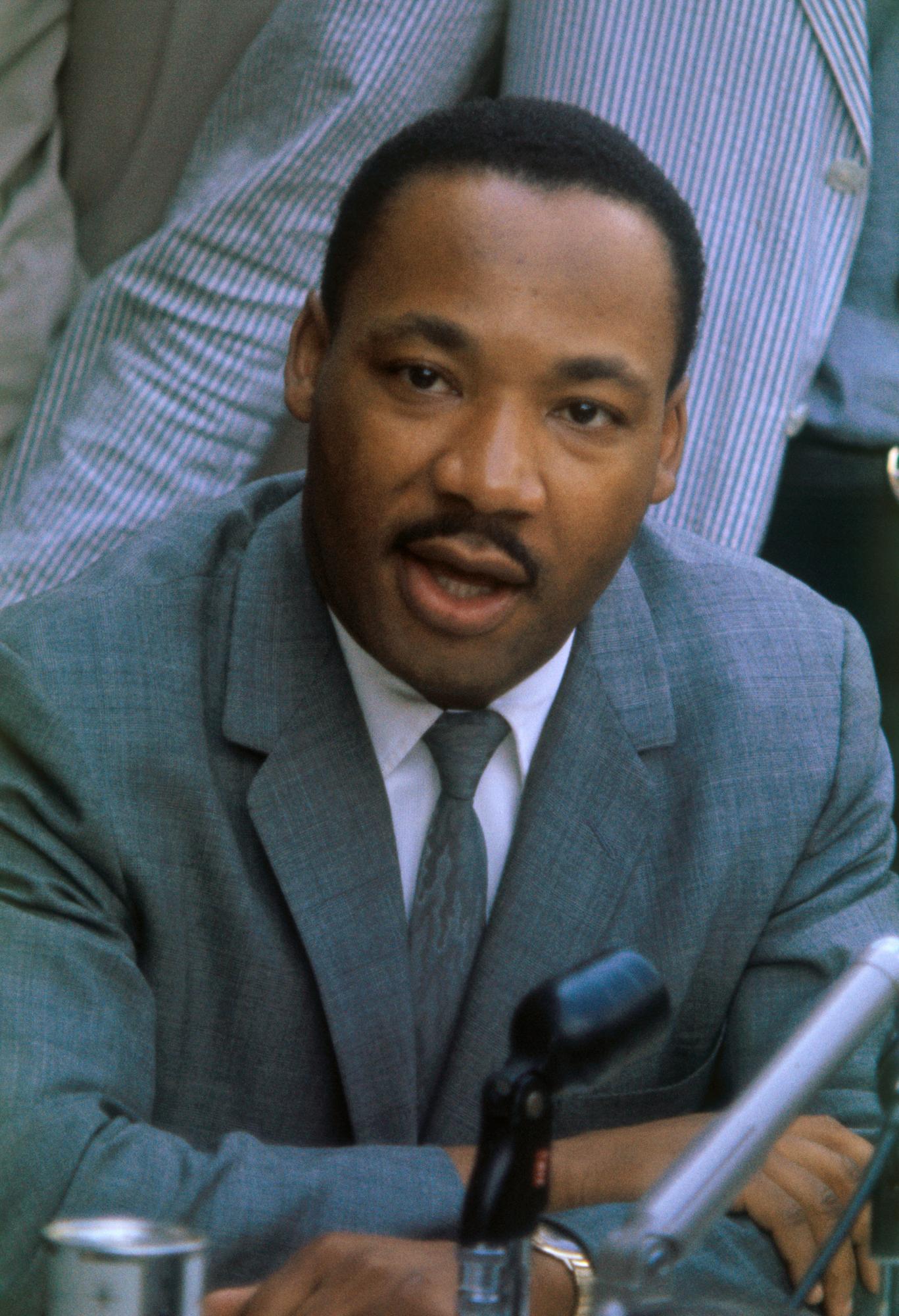Who is Martin Luther King and why Trump talks about him
 Who is Martin Luther King (photo: Getty Images)
Who is Martin Luther King (photo: Getty Images)
The name of the prominent American public figure Martin Luther King has become a symbol and synonym of the struggle for equality and justice in the United States. This pastor and civil rights activist received the Nobel Peace Prize for his achievements. Why does President-elect Donald Trump mention him in his speech?
Biography of Martin Luther King
Martin Luther King was born on January 15, 1929, in Atlanta, USA. His father was a Baptist pastor. In 1944, without even finishing high school, Martin passed his exams and entered Morehouse College in Atlanta. At the age of 15, he became a member of the National Association for the Advancement of Colored People.
In 1947, Martin was ordained and became his father's assistant in the church. After graduating from college with a bachelor's degree in sociology, he went on to study at Crozer Theological Seminary in Pennsylvania.
There, in 1951, he received his bachelor's degree in theology. The next step was graduate school at Boston University, where King defended his dissertation and received his doctorate in 1955.
In 1954, Martin became a pastor at a Baptist church in Montgomery, Alabama. It was there that he became president of the Improvement Association, which began to fight for the rights of people of color. And in 1956, the first victory was won - the US Supreme Court declared the Alabama segregation law unconstitutional.
Martin Luther King (photo: Getty Images)
Political activity of Martin Luther King
King considered the activities of Mahatma Gandhi, the leader of the passive resistance that helped India to free itself from British rule, to be an example for him.
"Gandhi's philosophy of nonviolent resistance is the only method justified in the struggle for freedom," he said.
In 1957, African American leaders in the South created an alliance of church organizations for civil rights called the Southern Christian Leadership Conference, and Martin became president of this organization. Already in 1958, he was attacked by a mentally ill woman with a knife, who wounded him while signing autographs in Harlem.
King organized a number of civil rights campaigns aimed at eliminating segregation in transportation, theaters, and restaurants. He traveled throughout the country and was arrested 15 times.
In 1960, at the invitation of Prime Minister Jawaharlal Nehru, he spent a month in India, where he studied Gandhi's work. In 1963, he led mass demonstrations in Alabama. In Birmingham, he was arrested for violating the ban on demonstrations, and it was then that he wrote the famous "Letter from a Birmingham Jail" to the city's white religious leaders.
"Actually, time is neutral. We must come to see that human progress never rolls in on wheels of inevitability; it comes through the tireless efforts and persistent work of men willing to be co-workers with God, and without this hard work, time itself becomes an ally of the forces of social stagnation.," he wrote.
In 1963, King and his associates founded the largest civil rights demonstration in U.S. history. It was there that he delivered his famous "I Have a Dream" speech, which became a symbol of the struggle for equality. In 1964, Martin Luther King was awarded the Nobel Peace Prize.
"Nonviolence has also meant that my people in the agonizing struggles of recent years have taken suffering upon themselves instead of inflicting it on others. It has meant, as I said, that we are no longer afraid and cowed. But to some substantial degree, it has meant that we do not want to instill fear in others or into the society of which we are a part. The movement does not seek to liberate Negroes at the expense of the humiliation and enslavement of whites. It seeks no victory over anyone. It seeks to liberate American society and to share in the self-liberation of all the people," he said in his Nobel lecture.
In 1964, the Civil Rights Act was passed, prohibiting discrimination on the basis of race, color, religion, or sex, a bill that Martin Luther King had actively lobbied for.
Enemies and assassination
King was a controversial figure and therefore had many enemies across the country. One of them was FBI Director Edgar Hoover, who called Martin a communist, a traitor, and a deeply immoral man. The FBI tapped King's phones and compiled an extensive dossier on his personal and civic life.
In 1967, King published the book "Where Do We Go From Here?", and the same year he openly opposed the Vietnam War and addressed an anti-war rally in Washington, DC. In the last years of his life, King fought not only against racism, but also against unemployment, hunger, and poverty throughout America.
In 1968, King was shot by a sniper while standing on the balcony of the Lorraine Hotel in Memphis. The public figure had come to Memphis to support a strike by local workers. He died from his injuries at St. Joseph's Hospital. The prominent public figure was buried in Atlanta.
The racist James Earl Ray, who confessed to the crime, was convicted of his murder. He was sentenced to 99 years in prison and later tried to withdraw his confession, claiming that it was all a conspiracy.
Legacy of Martin Luther King
- In the United States, his birthday has become a national holiday - Martin Luther King Day is celebrated every third Monday in January (January 20, 2025).
- His struggle became the basis for further movements for minority rights, social justice, and equality.
- King was awarded at least fifty honorary degrees from colleges and universities.
- He has left an indelible mark on world history as a symbol of nonviolent resistance and the fight for human rights.
- In one of his speeches, he said: There are three urgent and really big problems that we face today, not only in the United States of America but all over the world. These are the problems of racism, the problem of poverty, and the problem of war.
- Although Trump's political stance is not always in line with King's ideals, he has used the image of the pastor to call for unity and tolerance.
- Many memorial sites, buildings, and sculptures have been created in honor of Martin Luther King.
- On January 16, 1986, a bust of King was installed in the Grand Rotunda of the Capitol in Washington, D.C. It was the first time a black American was honored with such an honor.
Why Trump remembered Martin Luther King now
Donald Trump has promised to declassify all records related to the assassination of President John F. Kennedy, as well as to make public documents related to the assassinations of Robert F. Kennedy and Martin Luther King Jr.
"In the coming days, we are going to make public remaining records related to the assassinations of President John F. Kennedy, his brother Robert Kennedy, as well as Dr. Martin Luther King Jr. and other topics of great public interest," Trump said during a speech at a rally in Washington on the eve of his inauguration.
We also wrote about where Trump's family comes from and who his ancestors were.
Sources: Martin Luther King's official website, Wikipedia.


